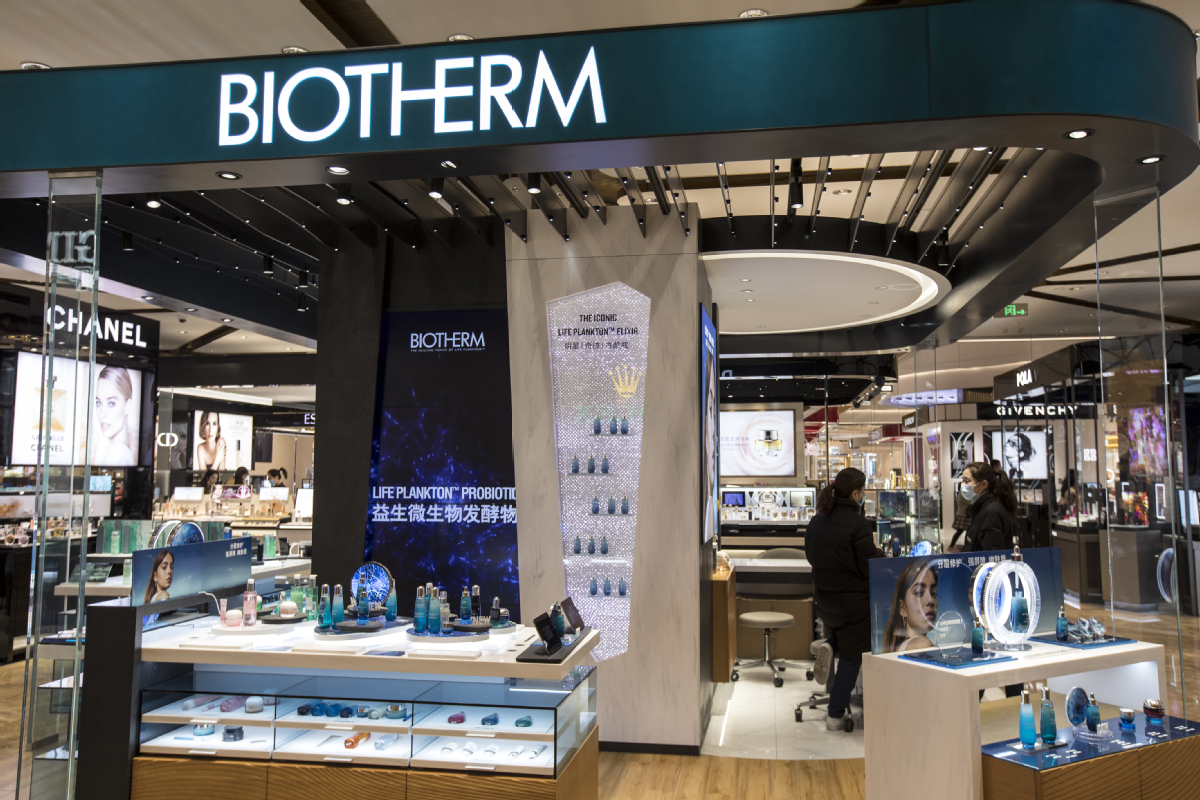Cosmetics sitting pretty in consumption growth
Generation Z driving force behind feel-good buying boom


"We are witnessing an increasing number of consumers that come to the store to buy things just to make them feel good, in order to boost sentiments of self-worth. A large number of them are generous givers. In Valentine's Days in the past years, people bought beauty products as gifts between husband and wife, dad and daughter, as well as best friends. Now, many of them simply take advantage of this special occasion to purchase something nice for themselves and the ages of consumers typically vary from 22 to 60," Zhang said.
He Tang, a post-85s white-collar worker in Shanghai, said he spends an average of 400 yuan ($55.2) per month on skincare and cosmetics products.
"There is a comprehensive shopping mall next to the building where I work. I visit the shopping mall every two days. In terms of beauty products, basically, I purchase perfumes, fragrances, shower gel, toothpaste, face washes, lotions, aftershave and facial masks," he said.
"Apart from buying these for myself, I also select gifts for my friends in these subcategories. My favorite brands include Lab Series, a skincare company exclusive for men, Japanese toothpaste brand Lion, and Acqua di Parma, an Italian perfume and fragrance manufacturer."
Zhan Junhao, founder of Fujian Huace Brand Positioning Consulting, said: "The beauty consumption trends of China's post-80s to post-00s generations demonstrate obvious generational characteristics, and each generation plays a unique role in the beauty market."
For those born in the late 1980s and 1990s who were exposed to international brands at a relatively early age, their pursuit of product quality and brand value is more mature, and their consumption is more rational. As a result, they tend to invest in efficient and high-end products, he said.
As natives of the digital age, this demographic of consumers pays more attention to personalization, freshness and the social attributes of beauty products, and are willing to pay a premium for products that meet their needs for self-expression, he added.
Alan Zhong, a market observer for over 20 years and also executive vice-president of Chinese markets at Clarins, said: "Among young consumers, post-00s shoppers — born and raised in the internet era — get access to information in a more convenient manner. Therefore, their consumption concepts turn out to be more open and avant-garde. They value individual expression and are willing to pay for high-quality, innovative beauty products. As post-00s consumers gradually enter the workplace, their spending power is expected to further grow. The group will undoubtedly become a consumption force that cannot be ignored in the market. We will continue to pay attention to the needs and changes of this consumer group, providing them with skincare and cosmetics products that are more in line with their values and aesthetic needs."
A recent report by Beijing-based online financial platform Jianpu.ai showed that compared to the post-70s and the post-80s generations, Gen Z consumers are more willing to pay for ostentation, attaching importance to personality and connotation while making purchases, and are found more willing to buy gifts for others than consumer groups of other ages.
The Q2 consumption industry report, jointly issued by Wanlian Securities and Huibo Research, showed that starting this year, with the stable growth of the national economy, consumption demand is being further released, among which cosmetics consumption demand is seen gradually reviving.
"Between January and April, month-on-month growth rates of the retail sales of cosmetics enterprises above a designated size started to recover. During promotional seasons, such as the March 8 online shopping festival, enterprises' retail sales experienced steady growth, and in some subcategories, domestic beauty brands outperformed multinational corporations," said the report.
In the future, with the gradual improvement of the economy, plus the decline in the unemployment rate of young people, the spending power of important beauty consumer groups is expected to be further repaired, which will release even greater cosmetics demand, said the report from Wanlian and Huibo.
























